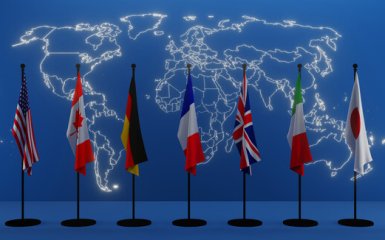The G7 countries are ready to support the US plan to provide Ukraine with a $50 billion loan secured by the frozen assets of the Russian Federation.
G7 is ready to approve $50 bn grant to Ukraine, collateralised by Russia's frozen assets
It is noted that this decision will ensure the financing of much-needed assistance to Ukraine and will help to protect against possible negative consequences of the results of the elections in the EU and the USA.
According to officials close to the negotiations, the governments of the G7 countries overwhelmingly support the US initiative to use the expected proceeds from the Russian Central Bank's frozen assets—$280 billion — to provide aid to Ukraine.
Currently, the heads of finance ministers of the G7 countries are discussing the US initiative in Stresa, Italy, planning to agree on several realistic options for the meeting of the leaders of the G7 countries on June 13-15.
According to the publication's interlocutors, the G7 is currently approaching agreement on the general provisions of the plan at a time when many important details are being discussed and also need agreement.
According to them, these include the exact mechanism of the loan, the size of the amount that will be raised upfront and, most importantly, how the risk will be shared between the parties involved.
What G7 thinks about the need to increase funding for Ukraine
The publication notes that the G7 countries agree that Ukraine needs increased financial and military aid.
In particular, given that Russia is not going to end the unleashed war against Ukraine and is trying to expand offensive actions, the focus has now shifted to providing medium-term aid to Kyiv and sending a strong signal to the Kremlin that the G7 partners are ready to support Ukraine as long as necessary.
At stake is ensuring that Ukraine can continue to finance its defence, service its debt, and receive sustainable financial support in 2025.
In particular, the EU agreed to provide Ukraine with the proceeds from the frozen assets of the Russian Federation twice a year.
The frozen assets are expected to bring in about $5 billion a year.
The advantage of the upfront income from asstets is that it sets out to ensure a benefit for Ukraine regardless of the political uncertainty surrounding the US presidential election.




